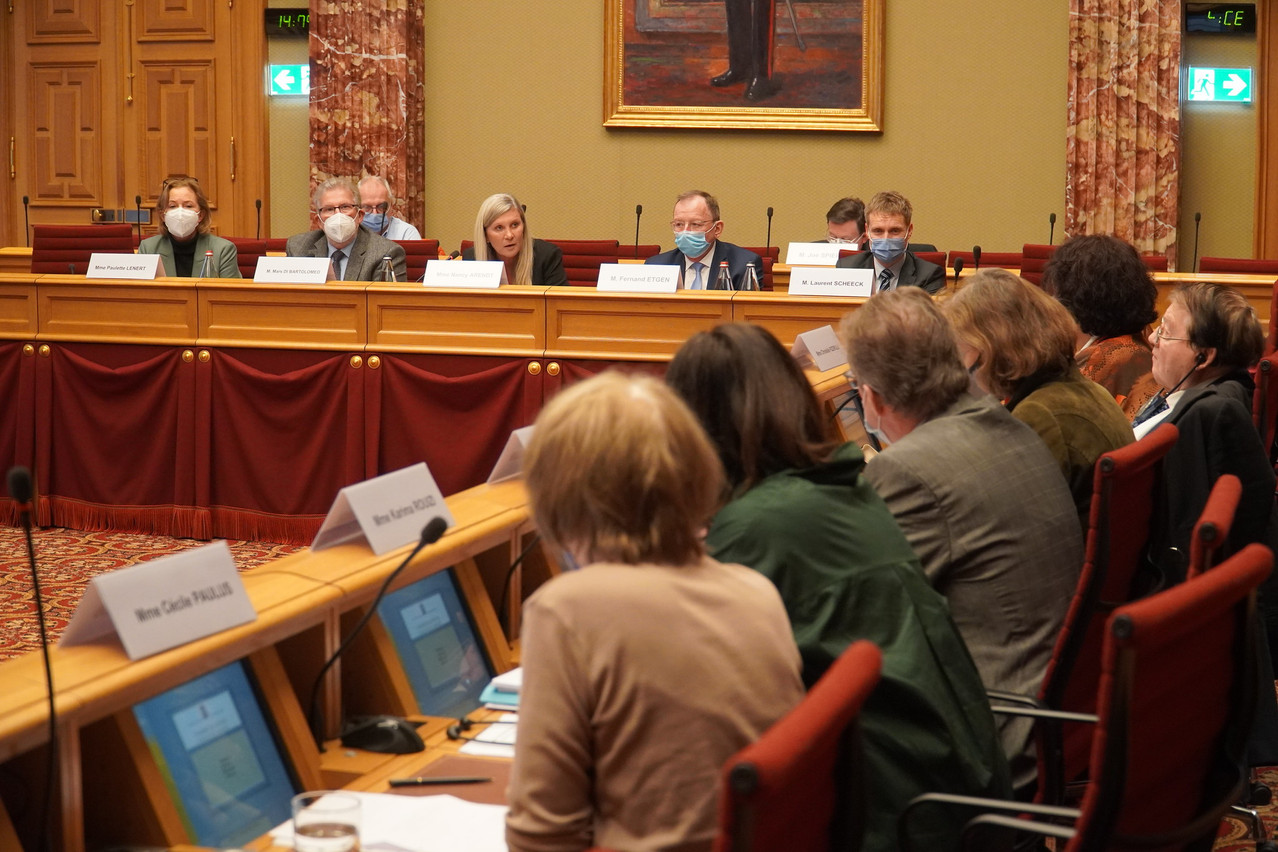The debate on compulsory vaccination that took place in parliament on Wednesday, following two petitions on the subject, is causing a buzz on social media. This increased attention was fuelled by the presence of controversial experts who found a platform in Luxembourg, while their comments were criticised by their peers.
This is the case of Luc Montagnier, winner of the Nobel Prize for Medicine in 2008, who claimed that the coronavirus could have been created by people in a laboratory. Alexandra Henrion-Caude, a director of her own research institute and former employee at the French National Institute for Health and Medical Research (Inserm), is also well known in France for her anti-vaccine stance, with Inserm having disassociated itself from her comments. Christian Perronne, who was dismissed by the Assistance publique--Hôpitaux de Paris (AP-HP) and prosecuted by the Ordre des médecins in December 2020 because of controversial remarks on the pandemic, was also present.
The live broadcast of the debate and its replay recorded 125,000 views on the Facebook page of Kairos, a Belgian media describing itself as “anti-productivist”. The interview with the guest experts which followed the debate had generated 266,000 views as of Friday 14 January.
Others welcomed, without any irony, the invitation of “world-renowned scientists”. Henrion-Caude personally thanked Luxembourg for hosting what she called a “historic” debate.
On French citizen media AgoraVox, which according to Le Monde's verification tool Decodex, “many contributors use in particular to relay conspiracy theories”, an article titled “Luxembourg Parliament: against vaccination” came in as the third most popular as of 14 January.
A distorted truth on social media
Member of parliament Sven Clement (Pirate party) voiced his regret over the debate in parliament. “I really insisted that their information was pure intoxication.” But “on social media, nobody sees that it was in the context of a petition. They post a video on the floor of the parliament as if they had been invited to give evidence by MPs. With a grain of truth, they can say whatever they want.”
He says he is “in favour of the right to petition, that everyone can be accompanied by whoever they want.” However, the role of experts invited by petitioners should be relegated to the background, allowing them only to answer specific questions when invited. “These are so-called experts, with words that are no longer accepted elsewhere in the world, who have dominated the debate.” He points out that they could not even have signed the petition as they do not have a Luxembourg registration number. He also believes that MPs should have had the documents cited in advance. “We tried to 'fact-check' in real time, but it is impossible.”
I don't think that the 11,000 people who signed one of the petitions agree with what was said.
The petitioners themselves were “taken hostage”, said Clement. “I don't think that the 11,000 people who signed one of the petitions agree with what was said in the public session,” he added. When asked about this, Christelle Pizzirulli, the originator of the petition with 11,456 signatures, did not respond to Delano's sister publication Paperjam. How did the petitioners come into contact with these controversial experts? On the question of how petitoners came into contact with the controversial experts Clement said: “That's an important question, there must be someone behind it who connected them and wants to make this kind of talk more visible.”
Better management of experts' speaking time
“Basically, we gave the possibility to those who came to invite a maximum of five people, for those who would have difficulties to express themselves, or because, sometimes, someone has a good idea, but is not an expert in the matter,” justifies Nancy Arendt (CSV), chair of the Petitions Committee.
The level was very high, they were nevertheless experts.
She admits that “when the petitioner hardly speaks at all and lets the experts do their work,” as was the case on Wednesday, “problems begin to arise”. She intends to discuss with MPs “how to limit the number of external experts”, for example by adding a rule that invited experts must be eligible to sign the petition. Another possible solution is “making sure that the petitioner has more to say”. In the future, she also intends to ask petitioners to send them documents before the debate.
Despite this, she is satisfied with the way the debate went, which she describes as “serene”. "The level was very high, they were nevertheless experts. I think it would be a disaster not to let them speak. There were no remarks of such sorts that we should have interrupted the debate,” said Arendt.
Nevertheless, “we have asked them to provide us with the cited documents, and we will verify them”. Arendt also added that “we have to see if what is presented to us is true. We have to give a voice to those who do not share the same opinion as the majority.
No specific control of guests
She added that Christelle Pizzirulli's petition was the fifth most signed. “Someone who gets that many votes certainly has the right to be heard in parliament.”
Speaking on rules on petitoners choosing guests Arendt said: “We have the list of participants often one or two days before the debate. We don't do research on everyone.”
As for the criticism of having offered a “platform” and a nice sounding board to these controversial experts, the chair of the committee replies: “The debate serves to listen and to see what we do with the petition afterwards, if we send it to a specific committee. That could have been the conclusion, but it won't be, because there will be a consultative debate next week with experts on compulsory vaccination.” This story was first published in French on . It has been translated and edited for Delano.


